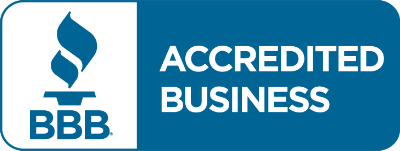How to Help Someone Detox at Home
Table of Contents
Battling a drug or alcohol addiction can completely upend your life. Work, family, finances, and friendships are all impacted as it begins to encroach on every aspect of your world. Unfortunately, if someone you know or love is struggling with addiction, it can be hard to know what to do. Meanwhile, as the negative consequences of addiction begin to pile up, it may be an excellent time to consider breaking free from its powerful grip. This post will give you the information you need to understand what a detox looks like and how to help someone detox at home from alcohol or opiates.
How to Help Someone Detox at Home
When a loved one is suffering from the consequences of addiction, it is understandable that you would want to help them get treatment. However, when approaching them, you may be met with resistance – maybe they aren’t yet ready to begin the process of recovery…or perhaps they are worried about people finding out about their struggles with drugs or alcohol.
You can’t force someone who isn’t willing to be rehabilitated, but you can help someone who is ready to get help and understand the alternative to undergoing detox in a facility. By letting them know that detox and withdrawal can be safely and successfully completed in the privacy of their home, you can push through their privacy concerns and help them begin the recovery process.
Can a Person Detox at Home?
If you envision yourself in a home detox, you may picture yourself doing some Internet research and then trying a hand at a DIY detox on your own or with the help of some of your friends. After all, they do it in the movies all the time, right? In reality, though, at-home detox is never recommended without medical supervision in almost every case. This is because of the serious risks involved, such as:
- More severe symptoms: Withdrawing from alcohol or opiates can be more powerful when detoxing at home. For these types of symptoms, you likely need professional medical assistance.
- No contingency plans: Withdrawal can sometimes lead to health complications and emergencies. At home, there is almost always no one equipped to contend with these contingencies.
- Lack of medicine: You may not have access to the appropriate medications needed to manage withdrawal symptoms at home.
- The worst-case scenario: Detoxing at home from addictive substances such as alcohol and opiates without medical supervision can prove fatal!
When is At-Home Detox Safe?
So, what are your options when entering a rehab facility or detoxing at home by yourself are out of the question? The best, and safest thing you can do is turn to a private nursing care center to provide in-home alcohol and drug detox. With this option, a private detox nurse will monitor vital signs and quickly give medical emergency interventions if needed.
Professional detox nursing services make detoxing at home a very safe proposition. There is a high standard of care involved and specialized training that allows for timely medical treatment. The detox nurse will supervise all phases of the detox, communicating with the attending physician as the detox proceeds.
Why In-Home Detox Services?
Proper detoxification is an essential step in the recovery process. After all, it’s not uncommon for individuals with addictions to experience physical and mental health issues that require medical attention while on drugs or alcohol. However, in a safe, supportive environment like private nursing care, your loved one will be taken care of by trained professionals who understand addiction and how it works.
Besides providing a safe environment away from the temptation to use again, in-home detox services offer addiction treatment such as counseling. Additionally, the professional staff is qualified and experienced at handling every step of the detoxification process, including withdrawal symptoms and other medical needs during this time.
How to Help Someone Detox from Alcohol at Home
One of the biggest obstacles to getting help for an alcohol use disorder concerns the perceived stigma associated with detox and rehab. In fact, people will often put off getting the support they need to overcome their alcohol problem in fear of their reputation being harmed in some way. Fortunately, in-home detox services offer many benefits that address these hesitancies, including:
- Privacy and discretion: You or your family member goes through the detox and withdrawal process in the privacy of your home. This benefit eliminates the worry of being seen entering a detox facility or having your personal information put at risk.
- Less anxiety: People are typically more comfortable in the safety and familiarity of their personal space versus a sterile detox facility
- Exceptional care: An in-home detox program involves the same treatment protocols and physician-led care found at the highest-ranked detox centers.
- You are never alone: In the comfort of your home, professionally trained team members are always there when you need them to manage emerging and existing withdrawal symptoms.
- Specialized attention: An in-home alcohol detox service will provide a detox specialist to care for you and monitor your withdrawal symptoms. This specialized attention offers a higher level of care than you would receive at a detox center.
How to Help Someone Detoxing from Opiates at Home
Regardless of the substance of abuse, going through detox and withdrawal symptoms is simply no fun. But, of course, anyone struggling with addiction who has ever found themselves without their substance knows precisely what withdrawal symptoms look like, as these will set in within hours after the last dose. Therefore, it’s understandable that the dread of the detox process may cause some to push it to the back burner.
Rest assured that an in-home addiction treatment service will provide an individualized plan of care that can include medical supervision and medication needed during withdrawal to alleviate that dread. This service can involve prescription medications and over-the-counter medication, depending on the substance of abuse.
Know the Substance
Knowing the substance that someone has been using, along with how long they have been using it, can be helpful with treatment and overcoming addiction. For instance, the longer that person uses alcohol and the more they drink can determine how severe their withdrawal symptoms will be, along with the timeline they can expect for the withdrawals to last. In turn, this can factor into the specialized treatment options they receive.
When people ask us how to detox from alcohol at home, we recommend speaking to one of our addiction and recovery specialists. Once they start treatment, our licensed and trained medical staff can oversee them and safely guide them through the home detox process.
Tips to Help Someone Detox at Home
When you are supporting someone through detox, your role is that of support and encouragement. Therefore, to help with detox at home, it’s best to remain positive and calm, which, in turn, creates a safe atmosphere in the home.
Other tips to help the person detox include:
- Knowing that detox doesn’t end when the person gets past withdrawal. We at Kinkaid recommend the person go through Aftercare Planning after detox to change their addictive behaviors and reduce the chances of a relapse.
- Understanding that the physical withdrawal symptoms often worsen before getting better (Day 3-4 is usually when opiate withdrawal peaks).
- Helping the person get their mind off of cravings by using the D’s listed below:
- Do: Encourage the person to do activities such as watching movies or TV, playing cards, taking warm baths and listening to upbeat music.
- Delay: Suggest that the person put off decisions for about an hour.
- Drink: Encourage hydration, especially when it comes to drinking water.
- Discuss: Talk to the rehabee to motivate and remind them of their reasons for stopping drinking or taking the drug.
- Do: Get them to do some gentle exercise such as walking, stretching, yoga and Tai Chi.
Things That Won’t Help During Detox
Along with knowing things that will help during a detox, it’s important to know the things that won’t. For example, not being prepared or having too much going on won’t help someone who is detoxing and may even cause them stress. Instead, you can better serve them by taking some time off work and getting some additional assistance for looking after any young children or seniors and explaining what is happening to them.
On the other hand, a person undergoing detoxification may seem agitated. For this reason, arguing or taking what the person detoxing says personally won’t help. Instead, be patient and supportive while they get through the detoxification process. Additionally, anyone you know that may cause arguments should be discouraged from visiting, along with any drug-using acquaintances.
Kinkaid Private Nursing Care Coordinates In-Home Detox Services
Kinkaid Private Care safely and discreetly coordinates concierge in-home nursing services, including private detox services. In addition, the trained detox nurses are prepared to intervene with medical and psychological support as the detox process progresses. For more information about how to help someone detox at home, don’t hesitate to get in touch with Kinkaid Private Nursing Care today at (866) 337-4596.
OUR COVERAGE AREAS
We service patients in California. Our headquarter states:
- Los Angeles
- Beverly Hills
- Bel Air
- Brentwood
- Westwood
- Pacific Palisades
- Santa Monica
- Malibu
- Holmby Hills
- Cheviot Hills
- Culver City
- Beverly Glen
- Beverlywood
- Includes Costa Mesa
- Newport Beach
- Newport Coast
- Huntington Beach
- Irvine
- Laguna Hills
- Laguna Niguel
- Laguna Beach
- Mission Viejo
- San Clemente
- San Juan Capistrano
- Yorba Linda
- Chino Hills
- Dana Point
- San Diego
- La Jolla
- Eastlake
- Hillcrest
- Carlsbad
- Oceanside
- Coronado
- Chula Vista
- Del Mar
- Escondido
- San Francisco
- Daly City
- Palo Alto
- Mountain View
- Oakland
- Berkeley
- San Rafael
- Richmond
- Walnut Creek
- Alameda






